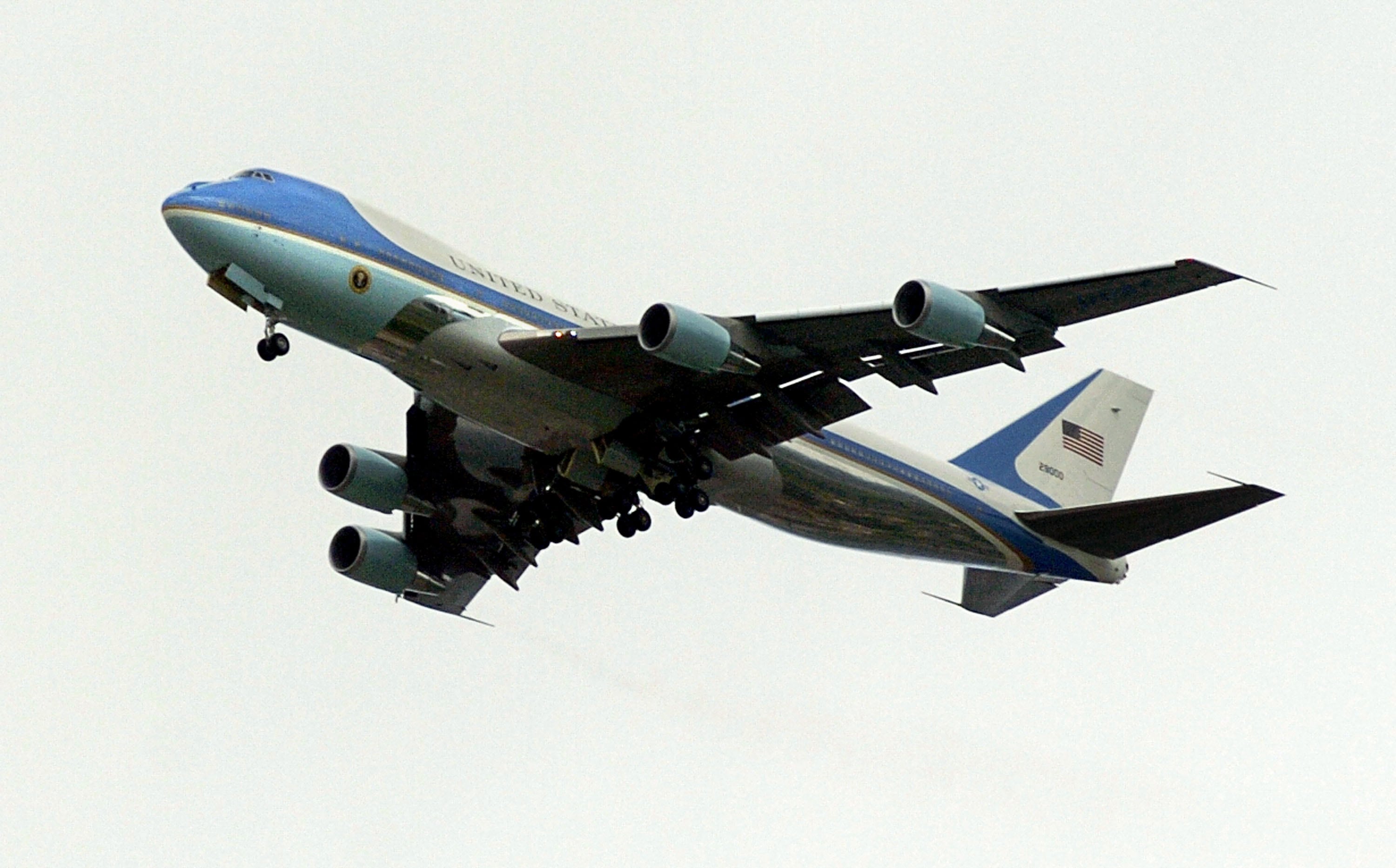WASHINGTON — Last year President Donald Trump told the Air Force to shrink the cost of new Air Force Ones aircraft or risk the program getting cancelled. Now Boeing and the service are nearing a deal for the two Boeing 747s that will be transformed into presidential aircraft, but the optics might not be great for Trump.
Sources with knowledge of the deal confirmed to Defense News that the Air Force and Boeing are finalizing a contract for two 747-8s that were originally produced for Russian airline firm Transaero but never delivered to the company. News of the negotiations were initially reported by Defense One.
“We’re working through the final stages of coordination to purchase two commercial 747-8 aircraft and expect to award a contract soon,” said Air Force spokeswoman Ann Stefanek, who declined to confirm whether the service would buy the Transaero planes.
Caroline Hutcheson, a Boeing spokeswoman also declined to confirm the specifics of the proposed agreement.
“We are working hard towards a deal for two 747-8s, and we are really focused on best price and value,” she said.
RELATED

Trump’s administration has come under intense scrutiny for its alleged ties to Russia, which has spurred a federal probe into potential links between Trump’s campaign and the Russian government’s interference in the 2016 presidential election.
Sources with knowledge of the discussions were eager to put distance between the aircraft and their original Russian buyer, repeatedly stressing that the Transaero jets were never given over to the Russian company or government — thus affording no opportunity for the aircraft to be tampered with.
RELATED

Transaero ordered the aircraft in 2013, but declared bankruptcy in 2015. Boeing, which had already started production on the planes, finished them and kept them in its possession for the entirety of their lifespan, sources said. The two 747-8s are currently housed at Southern California Logistics Airport, near the Mojave Desert.
Officials refused to comment on how much of a discount the Air Force would get by paying for the undelivered planes, citing the unfinished nature of the negotiations and Boeing’s own competitive edge.
Aerospace experts contracted by Defense News acknowledged that it would be difficult to quantify the Air Force’s potential savings because the cost of commercial aircraft fluctuates widely depending on the deal. While the list price of the Boeing 747 is $390 million, the actual price can run for much less — and the cost of an undelivered, existing jet even lower than that.
Richard Aboulafia, an aerospace analyst with the Teal Group, said it makes sense for the Air Force to buy undelivered aircraft that are already available. However, the planes are “just a small part” of the overall Air Force One costs, with a much larger chunk of funding needed to modify the commercial airliners with protection for nuclear blasts, defensive systems and a secure communications suite.
“I’m not sure they’d get that much of a discount,” he said. “If they were going to pay $230 million or so for the basic jet, maybe they’ll get a 10-15% discount, but then have to spend another billion or so outfitting it with the necessary equipment. And it moves the 747 line a few months closer to death.”
RELATED

Trump has said his involvement in the Presidential Aircraft Recapitalization (PAR) — the name given to the Air Force’s program of record to buy new Air Force One aircraft — has saved more than $1 billion, while the White House credited the president with saving “millions” on the aircraft. In actuality, it is difficult to gauge whether PAR costs have decreased, as the Air Force has never issued an estimated total cost of the program of record.
In May, Lt. Gen. Arnold Bunch, the Air Force’s top uniformed acquisition official, said the program was on track to issue two contract modifications by the end of the fiscal year: one for the two Boeing 747-8 aircraft and one for the preliminary design review.
“Then we’re going to work on how we’re going to execute the EMD [engineering, manufacturing and development] phase of the program, and that part is the part we’re having the discussion of [whether to structure a contract as] fixed-price, cost-plus [or] fixed price with cost plus [elements],” he said.
Valerie Insinna is Defense News' air warfare reporter. She previously worked the Navy/congressional beats for Defense Daily, which followed almost three years as a staff writer for National Defense Magazine. Prior to that, she worked as an editorial assistant for the Tokyo Shimbun’s Washington bureau.








